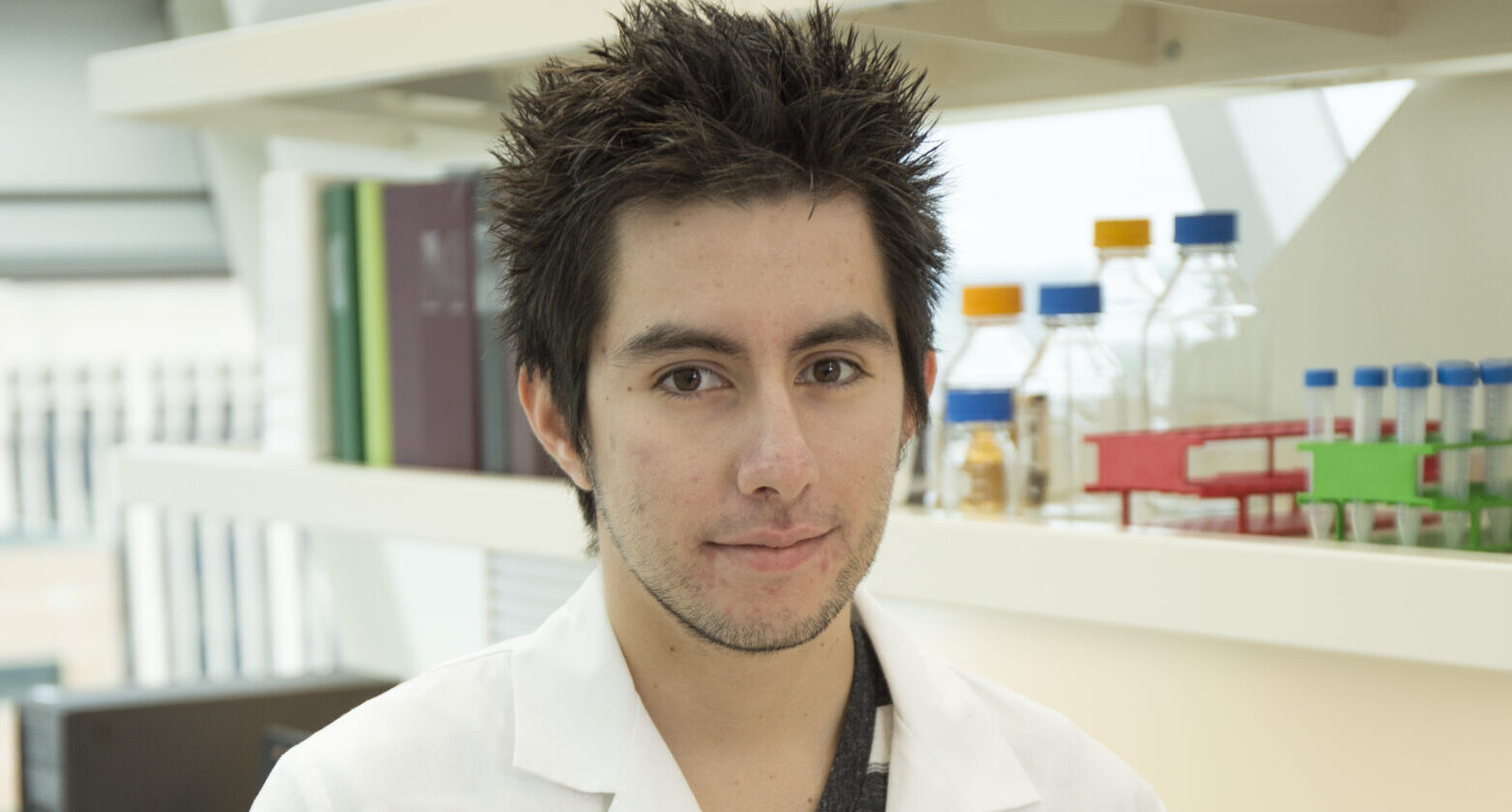Graduate student spotlight: Using a bench-to-bedside approach to improve human health
June 6, 2019

Every other month, we highlight one of Van Andel Institute Graduate School’s doctoral students. This month features Guillermo Flores, who is pursuing a Ph.D. at the Institute and an M.D. from Michigan State University College of Human Medicine. As a student in the lab of Dr. Patrick Grohar, Flores seeks to uncover the causes of pediatric cancers in hopes of finding new, more effective ways to treat these devastating diseases.
How would you describe your area of study to your family?
GF: I am trying to understand what causes childhood cancer so that we can better treat it.
What is your primary motivation for persevering through graduate school?
GF: An M.D. will let me treat individual patients. A Ph.D. will help me serve larger populations.
What do you want to do with your degree?
GF: I want to be dedicated to translational research. I want the clinic to inform my benchwork and my benchwork to provide the basis for new therapies.
Did you take time off before starting your Ph.D. degree or come directly from an undergraduate or master’s degree program?
GF: I entered medical school directly after my undergraduate education and entered graduate school immediately after the U.S. Medical Licensing Examination Step 1.
How has your previous coursework contributed to your breadth of knowledge?
GF: I feel that I draw on the knowledge provided by all my courses almost on a day-to-day basis.
Do you think there is any value in social networking with other graduate students in non-related fields?
GF: Definitely. New perspectives not only enrich your learning but can open your eyes to new possibilities.
How do you think earning an advanced degree will change your role in society?
GF: I expect the responsibility placed on me will only grow.
Did your past experiences in life or education help prepare you for graduate school or did you have to develop different strategies to succeed?
GF: There is no magic formula. Figure out what helps you succeed in other domains. Use these skills to help you succeed in graduate school.
What is your favorite stress-reduction technique?
GF: Hanging out with my dog.
What accomplishment (academic or other) are you most proud of?
GF: Being a teaching assistant and translator for a month-long biodiversity course in Peru. I caught piranha, wrangled an anaconda and hiked Machu Picchu.
Are you involved in other community activities and, if so, how have they shaped your graduate experience?
GF: Not as much as I would hope to; I volunteered a lot in the past but this has kind of fallen through since graduate school. However, I do tutor medical students. This also helps me keep abreast of medical school topics while being away.
If you were asked to put something in a time capsule for each year you have been in the program and this capsule would not be opened for 25 years, what would you contribute?
GF: Some souvenirs from the Everglades. Some souvenirs from Isle Royale. A ticket stub from Avengers: Endgame. Just to remind me that there is still time outside the lab.
Is there anything else you would like us to know about your doctoral education experience?
GF: It’s been a blast so far. I’m still not a cynic.